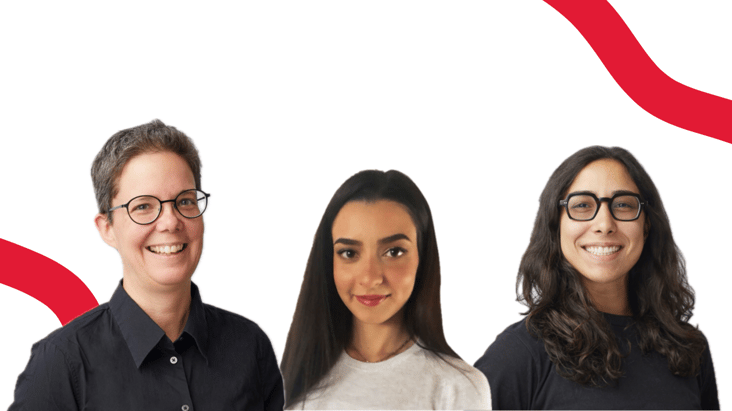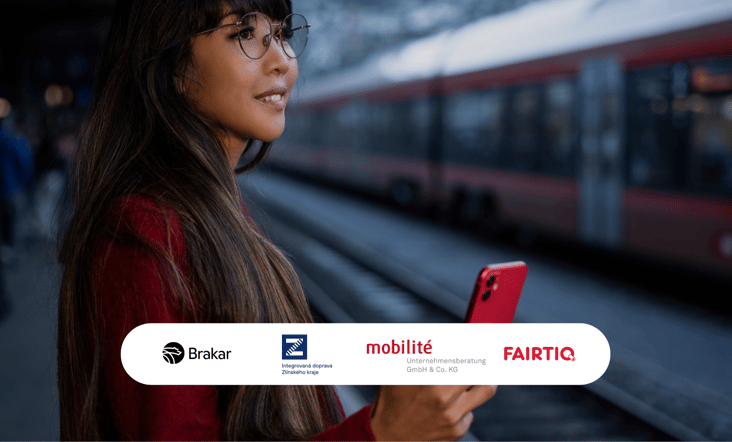
Christian Hillbrand of VVV joins the FAIRTIQ LIVE Talk

FAIRTIQ LIVE Talks: Turning a crisis into an opportunity – FAIRTIQ and the Verkehrsverbund Vorarlberg.
Markus Fedra, our FAIRTIQ Business Development Manager for Austria, interviewed Christian Hillbrand. Lots of virtual guests watched the discussion on Zoom.
A few highlights from Markus Fedra's interview with Christian Hillbrand:
Markus Fedra: How and why did VVV go for FAIRTIQ's solution?
Christian Hillbrand:
At VVV, we have long used a conventional, analogue ticketing system. A single ticket machine costs between €6,000 and €15,000 to buy. We found out that 50% of our 150 or so machines issue less than 16 tickets a day.
We wanted to gently push our passengers towards digital sales channels, which would allow us to gradually do away with our ticket machines and lighten our drivers' workloads.
We explored what particular requirements a digital solution would need to meet (special transactions like special event-specific tickets and a high density of annual travelcard) and then invited three bidders based in Europe to tender. In February 2018, we announced that FAIRTIQ was the winning bidder.
Markus Fedra: How have public transport users in Vorarlberg reacted to the FAIRTIQ app?
Christian HiIlbrand:
From the outset, customer feedback was positive, primarily because they really appreciated how user-friendly the solution is. Digital public transport ticketing has to overcome two typical entry barriers: opaque fare models and the need for a digital means of payment.
We also had to win over with the 'Nokia generation' – there are still technophobes out there.
The FAIRTIQ solution enabled us to overcome these obstacles. As a result, passengers never have to worry about whether they have the right ticket or not. FAIRTIQ works it out for them and charges the lowest fare available. That is definitely FAIRTIQ's USP and our customers really love it.
Markus Fedra: How can VVV phase out its extremely popular annual travelcard?
Christian Hillbrand:
FAIRTIQ's standard solution is a great help because it lets us manually enter the fare zones that are covered by an annual travelcard. The FAIRTIQ technology then is able to automatically identify whether the area the app user is travelling in is covered or not. The app also automatically calculates the connecting ticket if the journey goes beyond the annual travelcard zone.
In Vorarlberg we are trying to go one better than the already excellent standard solution by linking FAIRTIQ up to our annual travelcard management system. This means that annual travelcard holders simply have to enter their travelcard number and all the data on their card is automatically uploaded to the FAIRTIQ app, which makes it easier for them to buy a connecting ticket if they travel outside the annual travelcard zone. Also, FAIRTIQ app users no longer have to present their plastic annual travelcard to the ticket inspector. They simply have to show the FAIRTIQ screen on their mobile device.
Markus Fedra: How has the VVV responded to the COVID-19 crisis and what do you make of the 'Turning a crisis into an opportunity' idea?
Christian Hillbrand:
We lost major sales channels overnight. Rail transport accounts for only 15% of our operations, which means that the bus route network is the overwhelmingly largest source of revenue for our association. We really felt the impact of not being able to sell bus tickets on board. This was compounded by the fact that we had previously cut the number of ticketing machines and that the train station ticket counters were also shut.
We redirected a part of our marketing budget to launch a FAIRTIQ advertising campaign. It worked – the number of app users rose directly as a result. We adopted a multichannel strategy. Our online advertising campaign generated the best results, and the smartphone was not too far behind. It generated a promo code that users were able to directly enter into the app. We also put up posters at bus stops and train stations.
Audience question: Have any surveys been carried out yet to ascertain whether FAIRTIQ has encouraged car users to take public transport more?
Christian Hillbrand:
The main change in customer behaviour is the move away from buying tickets the traditional way towards doing it over the FAIRTIQ app. But there is some evidence to suggest that there have been other changes too. For example, dyed-in-the-wool car users have come out with statements like, "I've started taking public transport more often because FAIRTIQ makes it so easy."
We've also noticed that digital sales channels are not the exclusive realm of the gamification generation. Older users are enjoying the FAIRTIQ experience, too.
Markus Fedra: In Vorarlberg, the transport association is a mobility platform that includes car-sharing and bicycle lockers alongside its public transport services. How do you think VVV will evolve in the future?
Christian Hillbrand:
The public transport world does not necessarily view this as positive but in 2014 we launched the €365 annual travelcard. We did not necessarily bring in alot of new customers but we did manage to turn occasional users into regular customers. During the coronavirus pandemic, our annual travelcards have generated more revenue for us than single tickets.
Thanks to our travelcards and the FAIRTIQ app, we really understand what our customers want and can address these needs in a targeted way.
FAIRTIQ wants to thank Christian Hillbrand for agreeing to take part in the LIVE Talk and we are already looking forward to the next one!
If you have any questions about what FAIRTIQ has to offer, contact Markus Fedra directly:

Markus Fedra
Business Development
+43 664 371 85 37



.png?width=732&name=image%20(2).png)



Share